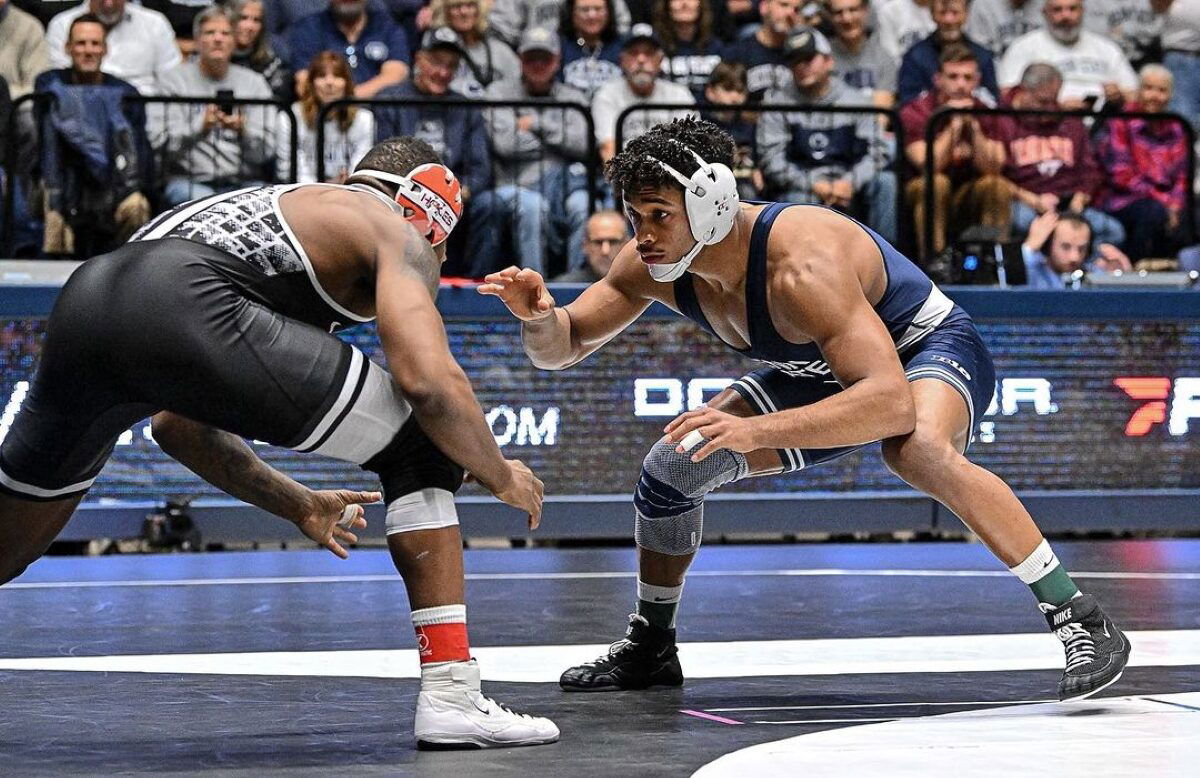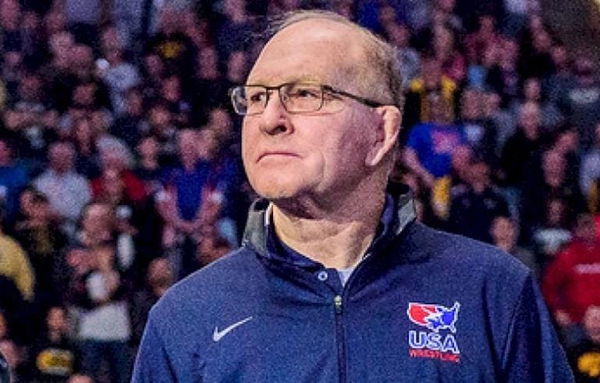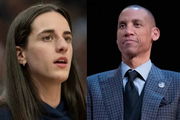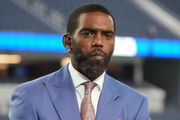

Imagine a world where college wrestlers are paid six figures before stepping onto the mat for a single professional competition. Well, it is the reality emerging from the rise of NIL deals. With these contracts/offers, college athletes monetize their name, image, and likeness (NIL) through brand deals, endorsements, and other commercial activities. Concerning this, one wrestling legend has shown mixed feelings. But regardless of his personal opinion, he has to get on board with it, and he has his reasons.
Dan Gable, the extraordinary Olympic gold medalist and star coach, shared his views. He dislikes the idea of NIL but is aware that it’s a necessary evil. Fast forward to recent times, NIL has restructured collegiate athletics, and that’s something that makes Dan Gable feel torn. He is aware of the importance of its role in the growth of wrestling, but he has questions: What if the financial lure could endanger the sport’s core values?
Watch What’s Trending Now!
Is money eating away at passion?
NIL has undeniably brought financial opportunity to collegiate wrestling, offering athletes the chance to secure lucrative deals early in their careers. In an interview on The Fred Minnick Show, Gable admits that change cannot be stopped. He said, “I personally have to jump aboard it even though I don’t like it.” And he is cautious about the shift in the priorities that come along with it. In Dan Gable’s eye, wrestling has always been about discipline, because wrestlers have a lot to learn, but now, NIL has turned into a threat to shift the focus on money. “I think it’s not based on performance; now it’s based on more money,” he says, worried that the fundamental motivation for athletes may begin to revolve around their earnings rather than their passion for the sport.
ADVERTISEMENT

ADVERTISEMENT
For Gable, the concern isn’t just about the athletes, he elaborates during his interview, but the long-term structure of college wrestling. With a lack of regulation, the financial expanse could create a boundary between the top wrestling programs and the rest. Dan Gable sees this as a potential threat, with NIL exacerbating the gap and possibly uniting just elite programs at the end. “Only a few colleges in wrestling are going to be able to afford this,” he said, speculating that a new division might emerge, where the wealthiest programs dominate while smaller schools struggle to keep up, stating, “That’s probably where it’s heading right now, and I don’t think we’re going to lose wrestling, but I don’t think it’s good for our sport.”
Above all that, the concern that surrounds Dan Gable extends to the diverse impact that NIL could project on the community of sports. For any elite sport, where athletes are there for the passion they have, not solely for fame or fortune. But, with NIL deals now incentivizing athletes with dazzling money deals, Gable is concerned about hurting the spirit of the sport.
ADVERTISEMENT
Dan Gable saw the changing landscape and uncertain future
Earlier, the NCAA and colleges used to profit from athletes’ NIL until The Fair Pay to Play Act was passed in California in 2019, and it was implemented later on July 1, 2021. The projected NIL market is expected to be at $1.67 billion in 2024-25, and in the academic year 2025, it is to cross the $2 billion mark, absolutely insane! Now that it is happening, the collegiate athletes are racking up dreamy amounts. For instance, wrestler Carter Starocci made $1.3 million in a single season with NIL deals. Whereas NIL valuation for Shedeur Sanders is at $6.2 million and for Livvy Dunne it’s $4.2 million.
Top Stories
Russell Wilson Breaks Silence on Connection to Jeffrey Epstein As Discreet Seahawks Contract Decision Reportedly Exposed

Everyone Notices Caitlin Clark’s Reaction After Reggie Miller’s Viral “Disrespect” on NBC

John McEnroe Lashes Out After Fan Pushes for Photo in Awkward Scene: “Go F*** Yourself”

NFL Makes Punishment Decision on Sam Darnold’s Seahawks After NFC Conference Championship Win

ESPN’s Kirk Herbstreit Airs Concern About Elderly In His Community Amid Tennessee Arctic Blast

ESPN Abruptly Cancels Weekly Telecast With Randy Moss Amid Billion-Dollar NFL Takeover

While Gable recognizes the importance of NIL in bringing financial opportunities to athletes, he worries that it could have a detrimental effect on their hunger to succeed. Dan, upon being asked if some of the hunger can be taken away from wrestlers if they get $100,000, responded with, “I definitely think that.” Dan Gable’s concern is that financial security at this age might lead to complacency, diminishing the drive that has always been at the heart of any sport’s competitive spirit. Also, NIL has deeply impacted sports, as athletes now compete for NIL rankings; it’s getting more money-centric than being fair.
ADVERTISEMENT
Gable fears that the introduction of big-money deals could produce athletes who are less motivated, which would ultimately undermine the values on which wrestling has built its reputation. The landscape of college wrestling is shifting, and NIL also gets supported by many. On the other hand, Dan Gable reluctantly acknowledges that NIL is here to stay; he is unsure what it will mean for the sport’s future. Only time will tell whether wrestling can retain its essence while navigating this financial transformation.
ADVERTISEMENT
ADVERTISEMENT
ADVERTISEMENT